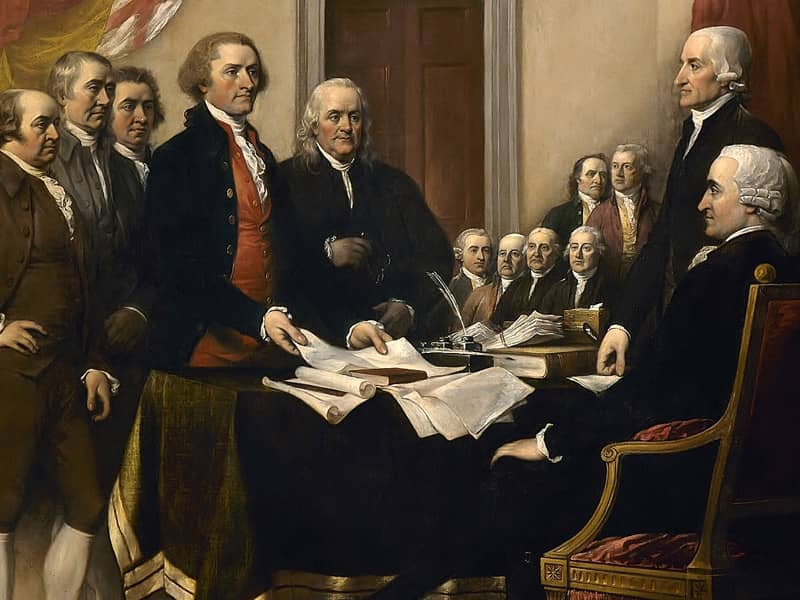While many elected officials take every opportunity to appear pious in the eyes of the voting public, the data published by Public Agenda suggests Americans have reservations about government interference with personal matters of faith.
On the often contentious issue of government-promoted school prayer, a mere 6% of respondents want an avowedly Christian prayer, and another 20% want a prayer that "refers to God but no specific religion." A majority of 53% would choose a "moment of silence" and l9% want to avoid all of the above.
Notwithstanding who or what people pray to if it is to a "nonspecific" God, a significant majority obviously rejects the need for some big push to bring organized religious activities back to schools. When one considers that half of the states already have "moments of silence" in public schools, it becomes apparent that existing law relating to school prayer meets the public's demands and expectations.
Despite this, the last time the House of Representatives considered a constitutional amendment to allow student-initiated vocal prayers in public schools, a majority of the members voted for it, though the total was far short of the two-thirds majority needed to pass. If they feared some enormous backlash from voters by saying "no" to what would have amounted to history's first amendment to the First Amendment, this new report should put the representatives' mind at ease (if they were not already comforted by the fact that no one lost their seat over the issue in the subsequent election).
One final curiosity about the report is its tortured effort to distinguish between unidentified "civil libertarians who have dedicated their careers...to the domain of separation of church and state" (a construct which respondents find "vague" and lacking in "clarity") and the "ordinary Americans" who understand "tolerance for different values" as the reason to be reticent about overzealous promotion of one's religion.
In fact, the values embedded in the Constitution do represent a hope that America would be accepting of a multitude of viewpoints, religious and otherwise. As a person who would self-identify as one of the "civil libertarians," I welcome that lofty constitutional principles are experienced as commonsense ways to operate in a diverse culture.
Ultimately, with most news agencies neglecting to gather poll data on these questions, Public Agenda has compiled a useful, if incomplete, snapshot of public opinion on the major church-state issues of the day. The results by-and-large confirm what many in the civil liberties community have believed for some time. Most Americans, it seems, prefer a "pragmatic" approach to questions on religious liberties. But these same people maintain serious reservations when they think excessive coercion is being used to advance religion.
This survey, and the focus groups that surrounded it, did not probe the strength of support for "moments of silence" when compared with other uses of time. During the first "moment of silence" mandated in Virginia high schools, one student calculated that this "moment" actually costs students six and one half full days of instruction over their school life. One wonders how respondents would have felt if offered another use for that time, say a moment of inspirational poetry or even a daily reading of the Associated Press' "On This Day in History" feature.
There is interesting data in this survey as well as on another subject of growing political interest: giving faith-based organizations tax dollars to deliver social services, including job training and substance abuse counseling.
President-elect George W. Bush was an activist proponent of this in Texas and is planning to set up an entire office to coordinate federal efforts in this arena. Although a sizeable plurality of 44% note that this is a good idea "even if these programs promote religious messages," a significant minority (31%) thinks it is a bad idea for government to be funding religious organizations. Most of the others (23%) accept the idea "only if these programs stay away from religious messages."
Again, the results of the Public Agenda survey reflect public opinion in conflict with the policy efforts of politicians. When Congress has adopted "charitable choice" language in welfare reform and other measures, it has generally done so without much debate, with few dissenting voices, and without clear protections against conveying religious messages in funded programs.
Clearly, the public sees problems with this diversion of tax dollars that Congress, in its rush to "help religion," largely ignores.The recent presidential race saw campaigns that sometimes seemed to be contests for a national preacher, but the Public Agenda report finds what I'd call a healthy resistance to this trend among Americans. Some 52% of respondents would be "neutral" if religious leaders pushed their views on specific legislation on congregations, and an additional 22% would react "negatively." I found these results rather unusual.
While I have serious concerns about houses of worship engaging in partisan politicking, I am not troubled by religious leaders being advocates for particular moral positions on issues, and it was surprising to see a high level of concern among the public.

